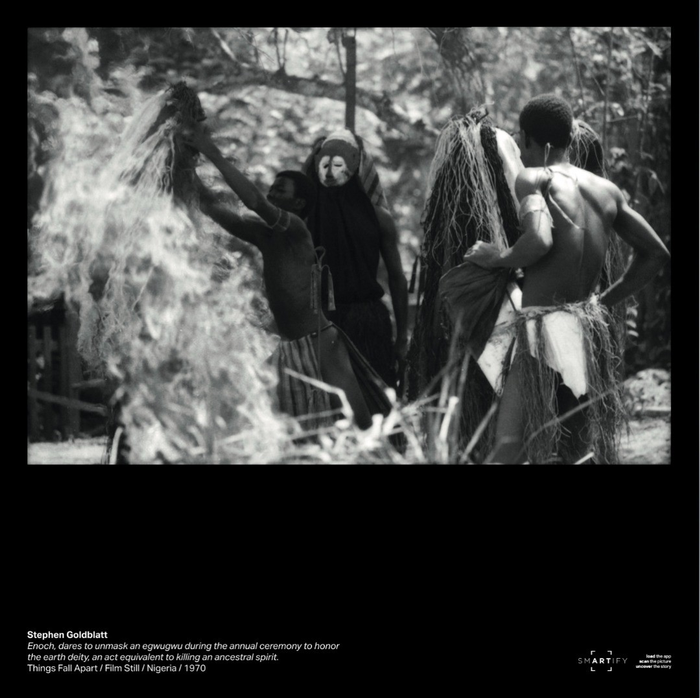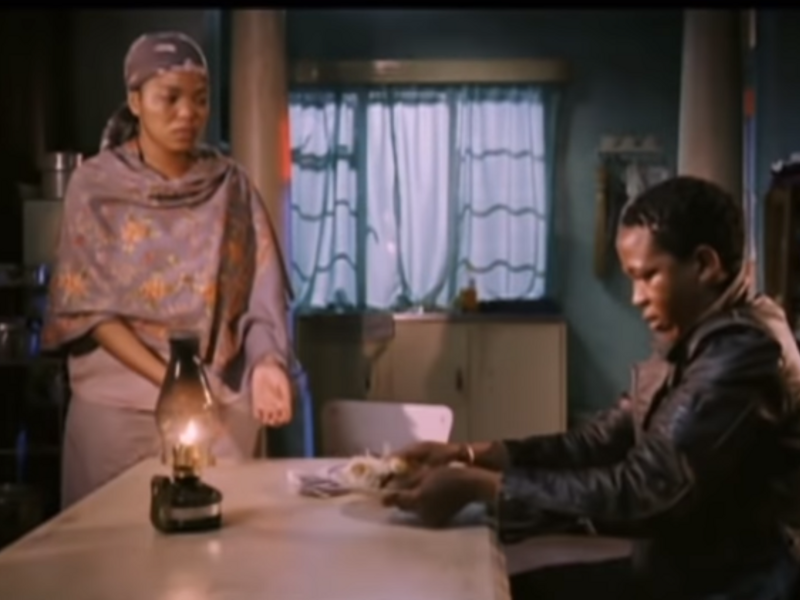Tsotsi trailer screencapture. Source: Youtube | Rotten Tomatoes Classic Trailers
12 Years a Slave, Amistad, Schindler’s List, Brave Heart, Troy, and Apollo 13, amongst several other movies, have not only entertained audiences over the years but have served as a tool to educate, inform, influence, and shape perceptions of society.
When it comes to storytelling, movies have remained a useful tool to showcase the history, culture, and tradition of a people. Through its use of dialogue and images, narratives that would otherwise have remained hidden are brought to life.
In Africa, the significance of the movie industry is crucial in highlighting the rich history, culture, and traditions of the continent and the people living within it.
Filmmakers have become custodians of history and must work tirelessly to provide accurate descriptions of the African experience. One major reason for this is to address the misconceptions, and stereotypes of the continent and its people.
As a result of the impact of colonialism on Africa, information and stories about the continent were told through the eyes of the colonialists which often cast a representation of Africa as the “Dark Continent”. Oftentimes, conversations with non-Africans have always presented an incorrect idea of the rich history of Africa.

Still from Things Fall Apart, Credit: Stephen Goldblatt. Source: Instagram | Modern Art Film Archiv
Films like Things Fall Apart (adapted from Chinua Achebe’s book), and Tsotsi presents a clear picture of the struggle of Africans during the pre-colonial, colonial, and post-colonial periods.
Such films provide a clear representation of the lived experiences of the people during that period and create a better appreciation of the reasons behind the clash of culture between the colonialists and indigenous ethnic nations within the continent.
This not only nurtures a sense of pride and identity but also addresses historical inaccuracies that have been carried over generations.
Another significant way the African movie industry is influencing the discovery of our roots is in the preservation of culture.
Traditional wedding ceremonies like the Lobola (practiced by the Zulu), the Igba-Nkwu (practiced by the Igbo of South Eastern Nigeria), and the Eunoto (practiced by the Maasai in Kenya) have constantly been showcased in African movies thereby capturing the essence of these ceremonies as well as the traditional rituals.
Documenting and showcasing these cultural practices through the lens helps create a sense of pride and identity in the minds and hearts of generations of Africans as well as offering viewers a glimpse at the richness and diversity of the African cultural heritage.
One other way the African Movie industry is strengthening the reviving of our roots is in the promotion of indigenous African language.
The United Nations Educational, Scientific and Cultural Organization (UNESCO) provides an Atlas of some of the World’s languages in danger of extinction. In Africa, 33 countries with thousands of languages are already on the list as vulnerable, definitely endangered, severely endangered, or critically endangered.
Through film, indigenous languages find a platform for promotion, expression, and celebration, ensuring their preservation and continuity.
Filmmakers in the African movie industry have continued to produce movies in indigenous languages with English subtitles. This has served as a strong tool to enable audiences both at home and abroad to engage in their mother tongue in relatable ways thereby fostering a sense of identity.
Also, the use of indigenous language in African movies provides contextual depth to the storyline that ordinarily would have been lost if transmitted in a second language generally understood by non-Africans.
Additionally, the use of indigenous languages in cinema contributes to an opportunity for language learning and proficiency among both indigenous speakers.
In essence, the African movie industry is not only a platform for entertainment but also an instrument that plays a significant role in rediscovering and showcasing the richness of the continent and its people.

Okechukwu Nzeribe works with the Onitsha Chamber of Commerce, in Anambra State, Nigeria, and loves unveiling the richness of African cultures. nextquestservices@gmail.com





